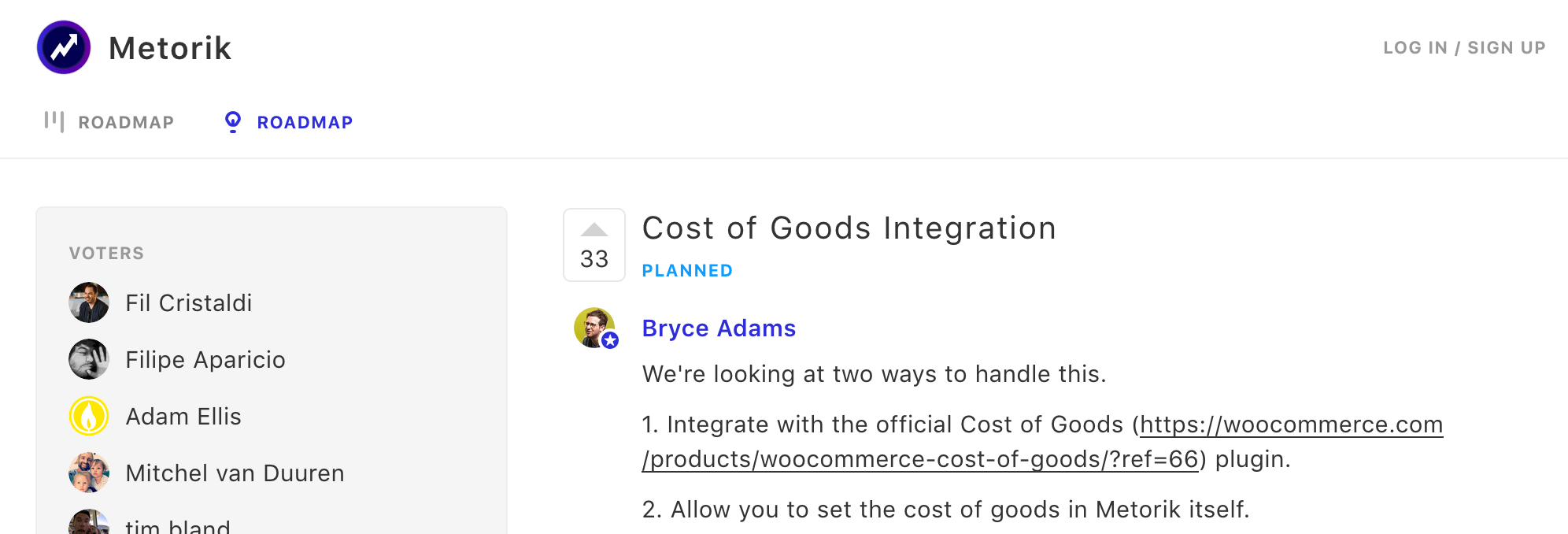When you're working as part of a larger team being lead by a project manager, you very quickly forget how everything comes together. If the project manager does their job well, you're given a clear set of tasks, which you can complete independently and efficiently. Of course, there's collaboration, but in the end the project manager ensures that all the moving parts (and team members) come together, so you can focus on what you as a team member do best.
When you're building a product on your own, you very quickly forget that you it's up to you to make sure everything comes together. There's no collaboration or teamwork. Just pure, uncompromising independence. It's both a curse and a blessing. For me, it's definitely more of a blessing. I'm actively choosing to work on Metorik alone, like I'm sure a lot of you are actively choosing to run your businesses alone. That independence is pretty magical. Want to switch gears and work on a new feature that you'll put live later that day? Do it. Need to publish a blog post or setup a new marketing page? It's live as soon as it's done. It's my secret weapon and truly a luxury.
But it can also be a curse. Sometimes that comes in the form of shipping a feature that made sense in your head but doesn't make sense for customers. Other times you get stuck with a challenging decision, perhaps related to pricing, and you're left to figure it out alone.
One thing very difficult to do alone is prioritize. Deciding what should be worked on and in what order is a constant struggle for me. I've tried to make this easier by doing the obvious thing - talking with my customers. Having a public roadmap where customers can add, upvote, and comment on ideas (powered by the amazing Canny.io) has undoubtedly helped. But it's a balancing act. Not only do I need to take customer feedback into consideration, but also consider the bigger picture, like the direction I want to take Metorik, its revenue & growth, what's technically possible, how long things take, and what features will help customers that they didn't consider themselves (like the recently added segments page).
I've been facing this recently as I've started to plan for 2018. The biggest priority for a while has been Engage, something I wrote about recently, which is going to be an add-on product, allowing users to leverage Metorik's powerful segmenting features to send automated emails and more. At the same time, the most requested feature and something I've wanted to add for a year now - Cost of Goods/Profit reports - has been weighing on my mind and customers continue to ask about it every week.

May 2019: We've moved to a new roadmap built-right into the app. Users can access it here.
On one hand, I have a product in itself that I've been working on for a while (Engage is in beta), will bring in extra revenue from existing customers (it will be a very fairly priced paid add-on), and will be very helpful to customers. But then there's Profit reports - an essential feature that probably won't take too long to build and will help a majority of my customers succeed with and get more value out of Metorik.
Initially I decided to finish Engage first. But since then I've given it some thought, received a bit of advice, and decided to focus on Profit reports first.
Why? Well, I'm confident that if it's given my full attention, I can get a version 1 of it done within a month (so hopefully by mid February). I can then give 100% of my attention to Engage, get it out of beta, and dedicate a bit more time to iterating on it. Overall I'll likely end up spending a couple months getting Engage live and improving it, before I can move onto other goals I have for 2018, like:
More marketing (Metorik's growth has been almost completely organic).
More blog posts (kind of ties into marketing).
Better documentation and guides.
More automation for general admin tasks.
Prioritization is definitely a skill in itself that I doubt I'll ever really master, but while it brings with it challenges, it also helps to shape the overall product and forces me to give my actions more thought. In this specific case, I feel like I finally got the better of it. At least, I hope so.

